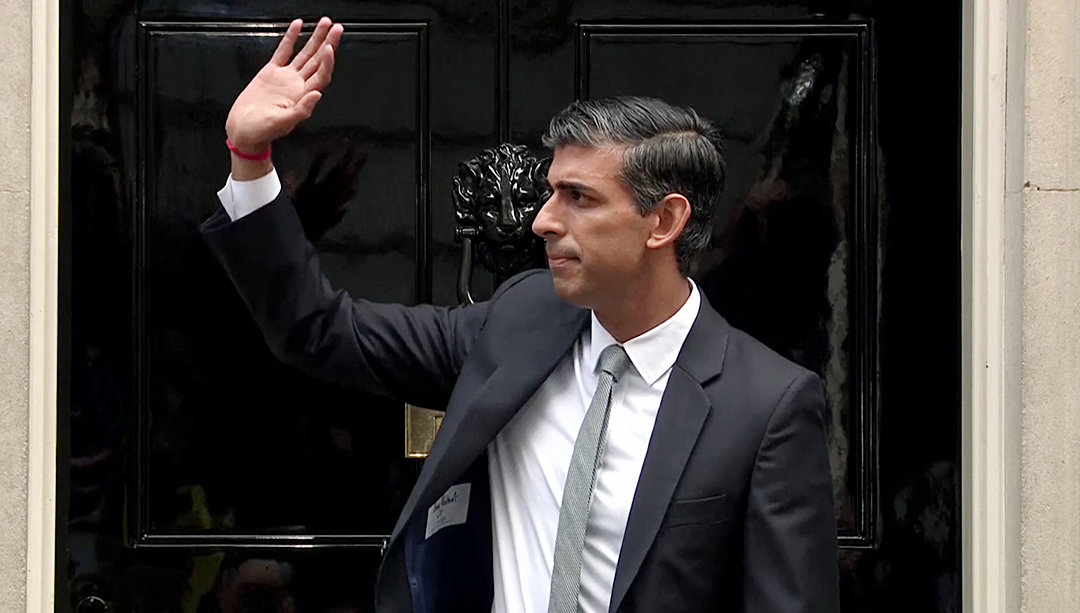At least 24 Tory MPs would need to vote for the motion for it to pass and the Government to lose…reports Asian Lite News
The Liberal Democrats are to table a motion of no confidence in the Government in an effort to force a June election. The Lib Dems are demanding a vote on Rishi Sunak’s administration after a strong showing at the local elections, in which they won more seats than the Conservatives.
The draft text of the motion reads “that this House has no confidence in His Majesty’s Government”.
By convention, if a prime minister loses a vote of no confidence in his or her government, they would have to ask the King to dissolve Parliament, triggering a general election.
However, even if all opposition parties supported the motion – including many former Tory MPs sitting as independents – the Government is certain to win a vote because the Conservatives have a working majority of 47 and a backbench plot to oust Mr Sunak was abandoned last week.
At least 24 Tory MPs would need to vote for the motion for it to pass and the Government to lose.
On Friday, a group of disillusioned Conservative MPs and their advisers gave up on their efforts to topple Rishi Sunak following the re-election of Ben Houchen, the Tory mayor of Tees Valley, in spite of poor local election results.
In a statement on Monday, Sir Ed Davey, the Liberal Democrat leader, said: “These local elections showed the country has had enough of Rishi Sunak and his out of touch Conservative Government. The Conservatives were pushed into third place for the first time in a generation as Liberal Democrats swept the board in former true blue heartlands. Yet Sunak continues to desperately cling on to power, holed up in Downing Street until the bitter end. Conservative MPs need to wake up and smell the coffee, and back giving the country the election it so desperately wants and needs. The longer this appalling Government stumbles on, the worse it is for the NHS, people’s living standards and our environment.”
It is unclear how likely the motion is to be selected by Sir Lindsay Hoyle, the Speaker of the Commons, but the Labour Party said it would back the Liberal Democrat motion if called for a vote.
A confidence motion in a government was last voted on in July 2022, when MPs voted by 349 to 238 in favour of Boris Johnson’s administration to give him seven more weeks in Downing Street before Liz Truss, his successor, took charge.
The vote had been tabled by Mr Johnson’s government itself in response to an attempt by Labour to hold a further confidence vote on his premiership.
He had survived a ballot of Tory MPs weeks earlier in the aftermath of the Downing Street parties scandal, only for his premiership to be brought down by the fallout from the Chris Pincher affair.
The last government to lose a vote following a confidence motion was James Callaghan’s Labour administration in 1979, forcing a general election five weeks later.
A motion of no confidence in the Government differs from a no confidence vote in Mr Sunak, which would be triggered by 52 Conservative MPs – 15 per cent of the parliamentary party – writing no confidence letters to Sir Graham Brady, the chairman of the 1922 committee.
A Liberal Democrat spokesman acknowledged that bringing forward the motion was “ultimately a decision for the Government”.
They added: “They should bring forward this motion so the House can have its say – every MP knows the British people are ready for an election.”
Prime Minister Sunak told journalists Monday: “Of course, this was a disappointing weekend for us but the result of the next general election isn’t a foregone conclusion … the situation is closer than many people are saying or indeed some of the opinion polls are predicting.”
“I’m absolutely determined to fight incredibly hard for what I believe and for the future country that I want to build,” the 43-year-old noted.
On the contrary, the Conservatives’ loss triggered nationwide demand for general elections as he had earlier noted that he had intended to do so in the second half of the year.
The ruling party could avert the no-confidence vote since they currently have the majority in the parliament’s lower house.
Reuters reported that the British government is not expected to give parliamentary time to debate confidence motions if brought forward by opposition parties other than the Labour Party.
Liberal Democrat leader Ed Davey said in the statement that the party would submit the motion on Tuesday. “These local elections showed the country has had enough of Rishi Sunak and his out-of-touch Conservative government,” Davey said.
Traditionally, governments that have lost a confidence vote have either resigned to make way for an alternative administration, or the prime minister has requested a dissolution from the monarch, triggering a national election.
The last time an election was forced by a no confidence motion was in 1979, when Jim Callaghan, then Labour prime minister, lost the vote in parliament and requested a dissolution.













